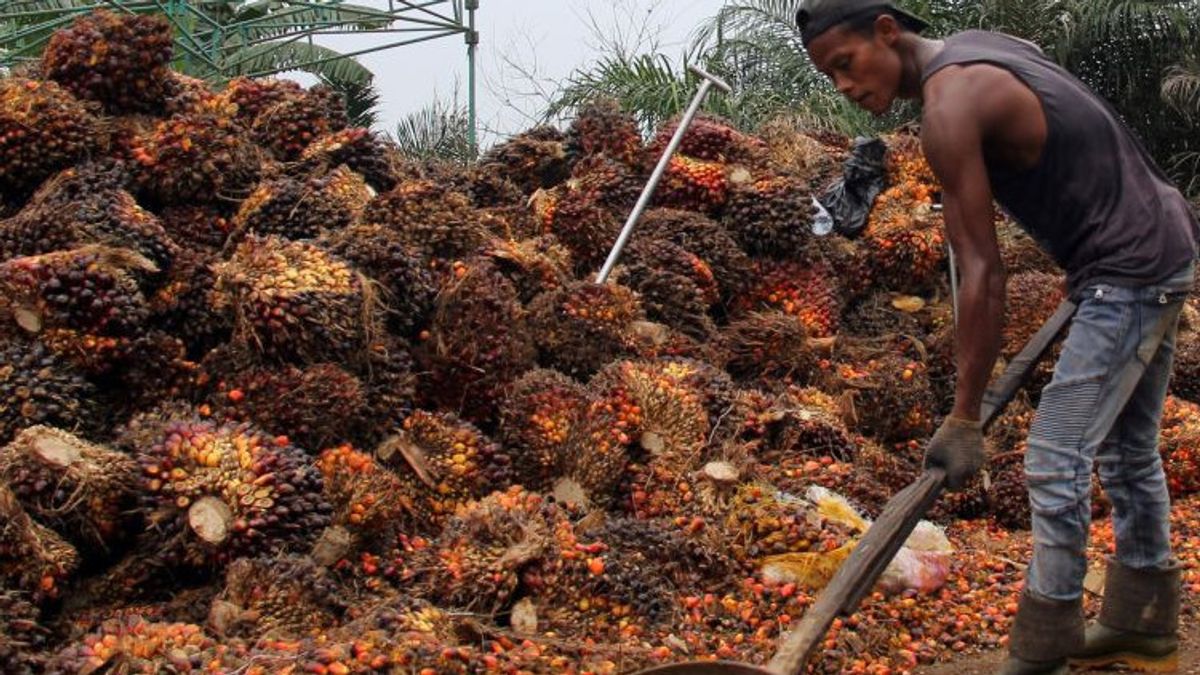JAKARTA - The Palm Oil Farmers Union supports President Joko Widodo (Jokowi)'s move to ban the export of crude palm oil (CPO) and its derivatives, including cooking oil. The decision was taken to ensure the fulfillment of domestic needs.
Secretary General of SPKS Mansuetus Darto said that his party believes the temporary suspension of exports will be able to maintain an even supply of cooking oil in the country at an affordable price.
"This is because business actors are always busy thinking about supplying their processed products abroad because it is profitable and they forget their duty to meet domestic needs," he said in a written statement received by VOI, quoted Monday, April 25.
However, Darto admitted that the impact of this policy was a decrease in the price of fresh fruit bunches (FFB) in several locations. Since yesterday, FFB in Sekadau, West Kalimantan, decreased by Rp. 400 per kg. Meanwhile in Jambi, it decreased by Rp. 500 per kg.
Therefore, according to Darto, the solution to this problem is that there must be a record at the factory regarding the names of the farmers who supply fruit to the factory. Because this will benefit the company's mills because when there is a normal situation, they will sell CPO at normal prices but they buy palm fruit from farmers at low prices.
"The records at the factory must be clear, so that their profits during normal situations can be returned to the farmers. This is an alternative solution," he said.
Another solution, continued Darto, is to allocate palm oil funds at BPDP-KS with an innovative program. For example with the help of fertilizers or based on the needs of farmers.
"Because if the price goes down, farmers can't buy fertilizer," he explained.
Darto said that this problem will always occur in the future, because cooking oil business actors control upstream to downstream palm oil, by owning a plantation they also have a cooking oil refinery.
"They are only a handful of people. Unfortunately, the country does not have a cooking oil refinery. The President must strengthen farmer cooperatives or state enterprises to develop cooking oil refineries, both micro and large scale," he said.
By strengthening cooperatives, said Darto, the state is not inferior to a handful of people who control the upstream to downstream domestic cooking oil industry.
"This is also a danger to domestic economic and political security. With cartelization alone, it can destroy domestic political stability," he explained.
The English, Chinese, Japanese, Arabic, and French versions are automatically generated by the AI. So there may still be inaccuracies in translating, please always see Indonesian as our main language. (system supported by DigitalSiber.id)













